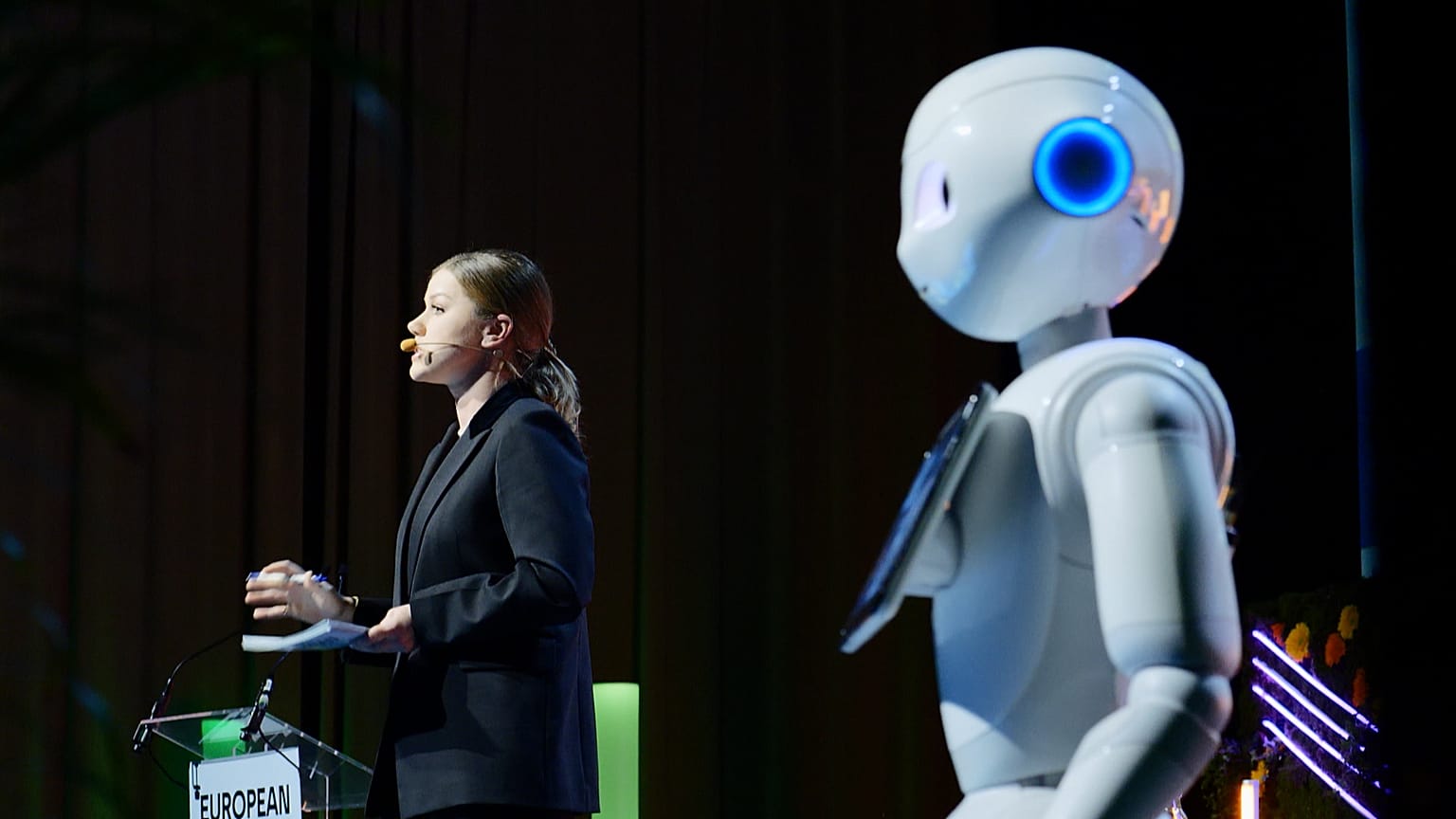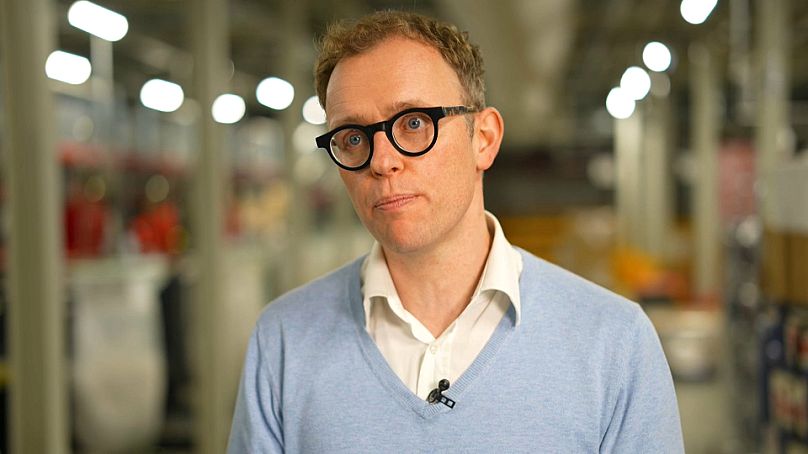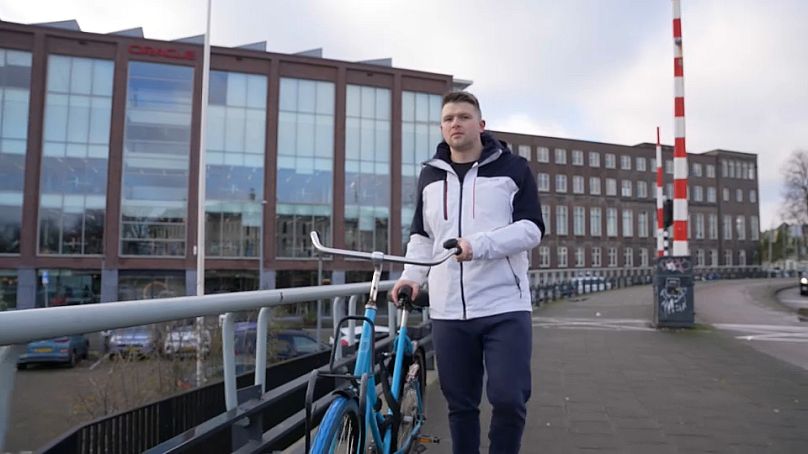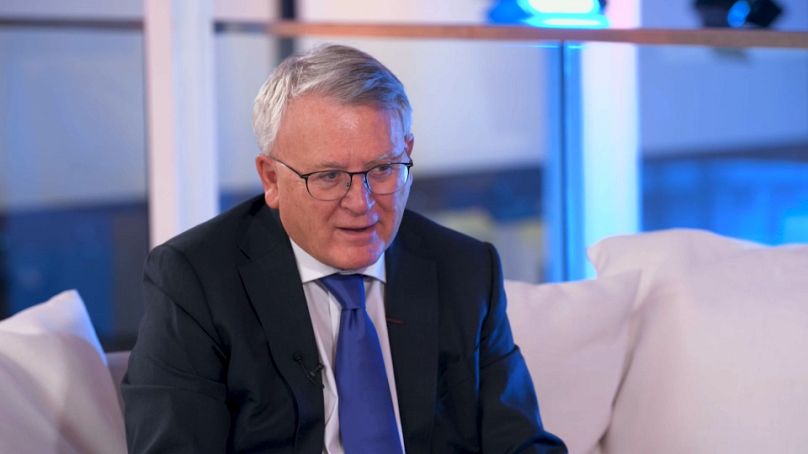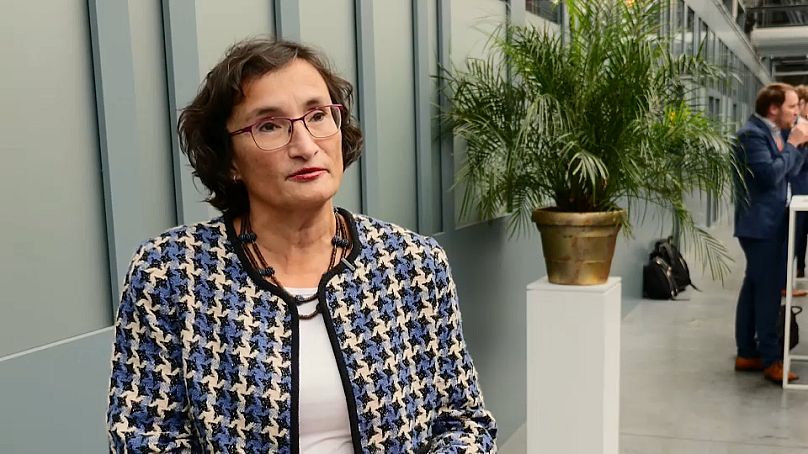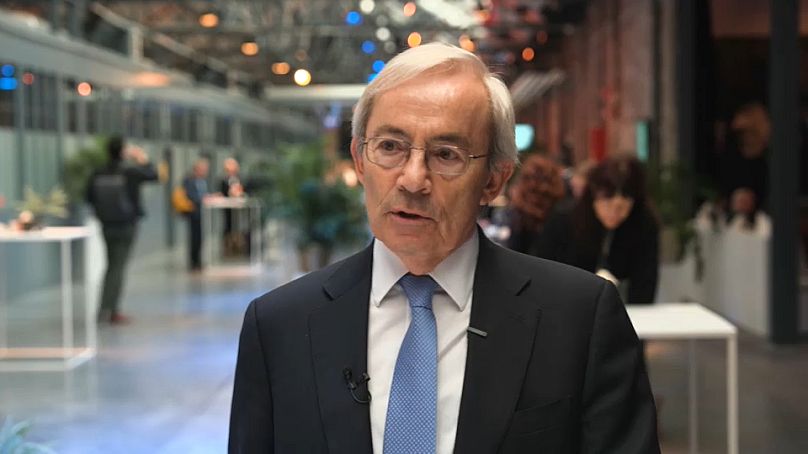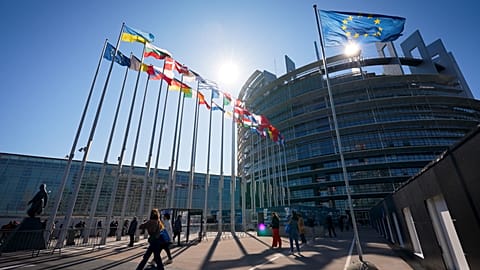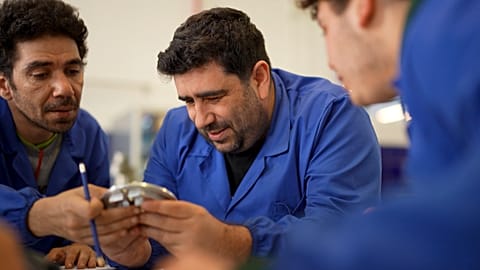In this episode of Real Economy, we’re asking what AI means for the world of work. Might it make those tricky tedious tasks easier, or is it actually coming for your job? And if you’re not in the firing line just yet, could you be working next to a bot sometime soon?
Right now, there's a lot of talk globally about Artificial Intelligence. On Friday 8 December, member states and the European Parliament reached a preliminary deal on the AI Act, the world's first attempt to regulate the fast-evolving technology in a comprehensive, ethics-based manner.
The EU's move to legislate AI tech comes at a time of rapid change in the workplace. In a recent report, around 75% of the firms questioned said they planned to adopt AI-powered systems by 2027.
How is AI-powered tech revolutionising jobs in the Netherlands?
Dutch supermarket Picnic is attempting to revolutionise the online grocery sector. Highly automated centres, like Picnic's in Utrecht, are full of lots of AI tech.
The firm says that enables it to deliver food fresher, faster and cheaper - a clear edge in a highly competitive industry.
In addition, Picnic says its adoption of AI has created lots of skilled new jobs, for instance in fields like data analysis, while removing much of the hard graft done by workers in its distribution and fulfilment hubs.
"AI creates an opportunity for many, many people that there are new jobs that don't exist currently, that they can do in the future," said Daniel Gebler, Picnic's Chief Technical Officer. "This is about creative work, but also technology takes over the repetitive work and the hard work."
Picnic says its tech and business model allows it to be more sustainable. The supermarket already delivers for free in fully electric vehicles. However data-driven analysis to cut down on food and packaging waste is also central to its operation.
"A service like Picnic can operate in a very sustainable way, but this goes a step further where we are not only with good forecasting, making our service, our operations sustainable, but also our suppliers," Daniel Gebler added.
'They track everything': the rise of AI and job insecurity
Used well, AI potentially offers big benefits. But what happens when the tech ends up invading our every moment?
Joseph Skull is a bicycle courier for a leading on-demand delivery service in Amsterdam. He says he’s fed up of constantly being monitored by the company whilst on shift.
"They track everything that we're doing whilst we are at work," he told Real Economy. "They can see if we stop somewhere for five minutes and they could ask questions about why are you taking so long when you're just simply having to do things that you have to do whilst at work."
Dutch unions agree, saying more should be done to reign in delivery firms, especially their use of AI algorithms in the bid to improve productivity.
"We see a lot of problems as a union for workers," revealed Frank Van Bennekom, a Union Official for FNV Young & United.
"Wages are low. There's no security and there's no safety. For instance, in some cases, bonuses are being taken away if a rider doesn't deliver at a given time. This really leads to unsafe situations. And this, I think, should be made illegal by law."
One concern is that AI will lead to more, not less precarious work, in the so-called gig economy, and diminish job quality by using AI-powered algorithmic management tools.
"I want to feel that I can go to the toilet, eat some food, change my clothes when my clothes are wet through from the horrible weather that we have sometimes. And I want to feel like I'm not going to be punished for that," Joseph Skull said.
How will the EU protect workers' rights when it comes to AI?
Experts and policymakers met at this year's EU Social Forum in Brussels to discuss, among other pressing topics, how to reap the benefits of AI while also ensuring fairness, inclusion and safety at work.
"What is important is that we do not hamper this technological change, but we make sure that we are identifying the measures we need to protect workers," the European Commissioner for Jobs and Social Rights, Nicolas Schmit, told Euronews.
"The first important directive we are working on is the protection of platform workers because they are directly affected by algorithmic management. We are now pushing very much for the adoption of this directive, which on the one hand gives guarantees to protect workers in the context of algorithmic management, but also to protect them in terms of social rights, social protection rights, health and so on."
In addition to its platform directive, the EU is finalising its AI Act which seeks to create the world’s first rulebook for such tech.
Those working on better global regulation say good governance of AI is urgently needed.
"What we see at this moment is that AI looks very much like a car without brakes and without seatbelts being driven by someone without a driver's licence," said Virginia Dignum, a member of the UN Advisory Board on Artificial Intelligence.
"If we let things go as they are now, I'm afraid that the benefits are for those who are already now benefiting from AI - the big tech and the multi-millionaires of this world."
"We think that the key is to put humans in command, said Beate Andrees, the Regional Director (Europe and Central Asia) for the International Labour Organization (ILO). "It means involving workers in business, in setting regulations, in collective bargaining, and discussing the impact of AI in the workplace."
'The mindset of lifelong learning': reskilling and upskilling Europe's workforce
Another top topic was training and improving digital skills. In the future 90 percent of jobs will need them. Right now, more than a third of the EU’s labour force lacks what’s currently required.
Nobel Prize-winning economist from the London School of Economics, Christopher Pissarides, says workers should try to adapt.
"They should try and find out what's going on in their company. And find out how they can train themselves on the direction of the new technology, work with it, and they'll feel much more satisfaction," he told Euronews.
"We have to create a real mindset of lifelong learning, of people knowing that they have to be retrained, they have to be reskilled, they have to be upskilled, not just with the risk that they lose that job, but with the guarantee that they will find another job," said Nicolas Schmit.
"I am not a techno pessimist," Schmitt added, concluding that, "We can have a better world thanks to technology. We can have better work organisation, taking away from people the repetitive or tedious work. But this means that we have to keep control. It's not about predicting the future or fearing about the future. It's finally to shape the future. That's what we have to do."














